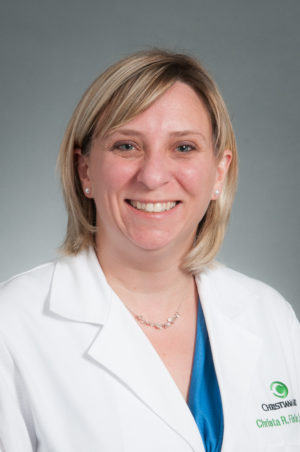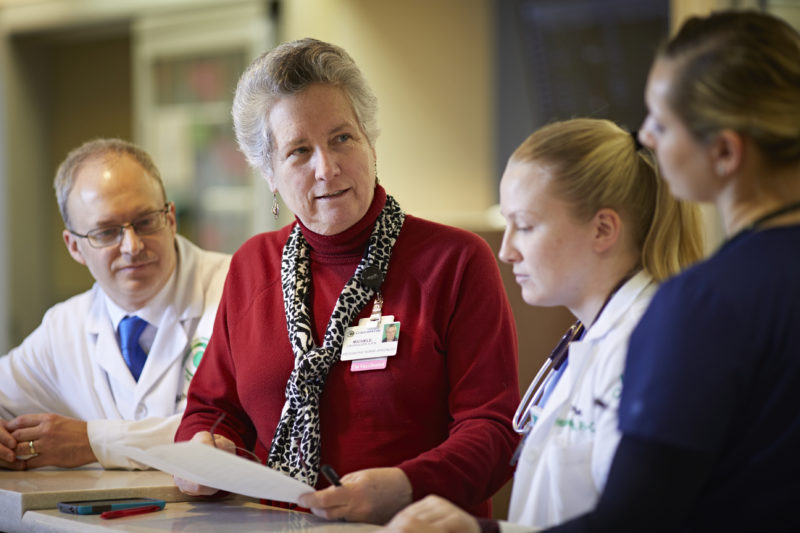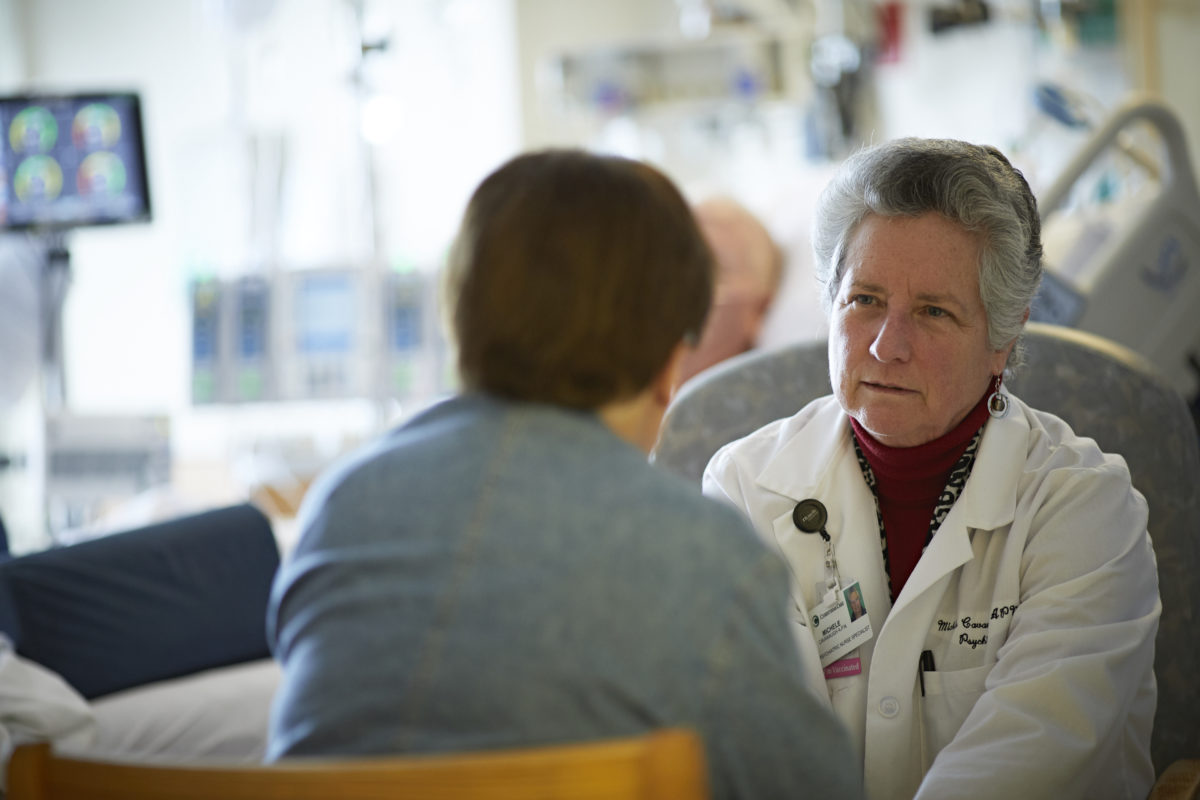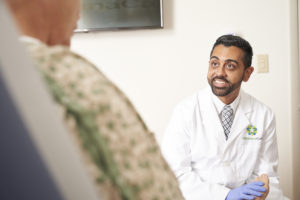Spending time in the Medical Intensive Care Unit (MICU) is often traumatic for patients and their families. Patients are critically ill or have suffered serious injuries. They may depend on a ventilator to breathe. Their loved ones may be faced with difficult life-and-death decisions.
An innovative new pilot program is providing welcomed support to these patients and families — connecting them directly with a behavioral health consultant embedded in the Medical Intensive Care Unit. The program is called Psychological Support for Intensive Care Unit and Pulmonary Patients and Families — or PIC UP.

“The acronym refers to the fact that we want to help patients and families pick up and move on from their ICU stay so they can start living their lives again,” said Christa Fistler, M.D., the pulmonary intensivist who came up with the idea after witnessing the struggles of patients and families during hospitalization.
Each afternoon, Monday through Friday, Michele Cavanaugh, APN, the behavioral health consultant for the MICU, huddles with attending physicians on the unit and reaches out to patients or families who might benefit from her support.
“The intensivists point out patients or families they are concerned about for a variety of reasons, such as stress or conflict with each other about decisions that need to be made,” Cavanaugh said. “I introduce myself and my role and then will go back several times to build a relationship.”

She helps patients cope with the anxiety that often accompanies breathlessness. She uses techniques such as guided imagery to help anxious patients. She may use motivational interviewing to assist patients in changing their behaviors to promote health. She uses active listening to learn more about issues that concern patients and their families.
“I use myself as a guide. What would I be thinking or feeling the need to know if I were in their position?” she said. She sometimes recommends specific tasks to family members who might be struggling to manage a stressful, emotional situation. For example, she might recommend calling the family pastor to join at the bedside, or she might recommend that family members take turns in the hospital so that others can go home to get some sleep. She also educates the nursing staff on the behaviors of patients and families under stress so they can provide more effective, compassionate care.
ICU patients can suffer from something called Post-ICU Syndrome, Dr. Fistler said. Anxiety, post-traumatic stress disorder or depression can sometimes follow a critical illness, affecting individuals or families.
“In general, evolving medical literature shows that behavioral health issues can be associated with higher readmission rates and longer lengths of stay,” Dr. Fistler said.
The PIC UP program is in line with widespread efforts throughout Christiana Care to embed behavioral health services and consultants into primary care and other practices, including cancer care, cardiology and neurology.
“Integration affords rapid access to behavioral health experts as well as destigmatizing assistance for emotional concerns,” said Alan Schwartz, Psy.D., director of Behavioral Health Integration.
The pilot is a collaboration between the Acute Medicine and Behavioral Health service lines. The team also collaborates with Palliative Care and Project Engage, a program that engages patients with substance-abuse issues while they are still in the hospital. Dr. Fistler received support from key leaders who helped her to bring the program to fruition, including Michael Benninghoff, D.O., medical director of the MICU, Linda Lang, M.D., physician leader of the Behavioral Health Service Line, associate physician leader and Chief of Addiction Medicine Terry Horton, M.D., and Vinay Maheshwari, M.D., vice chair of the Department of Medicine and associate physician operations leader of the Acute Medicine Service Line.
PIC UP was rolled out in late July. Preliminary feedback from patients, families and staff has been positive. More than 50 percent of the staff surveyed felt their work days were less stressful when a behavioral health clinician was involved in a case.
“There’s a difference between surviving and living,” Dr. Fistler said. “When patients and loved ones receive the behavioral health support they need to resume living, it benefits everyone — patients, families, medical staff, the health care system and society as a whole.”



